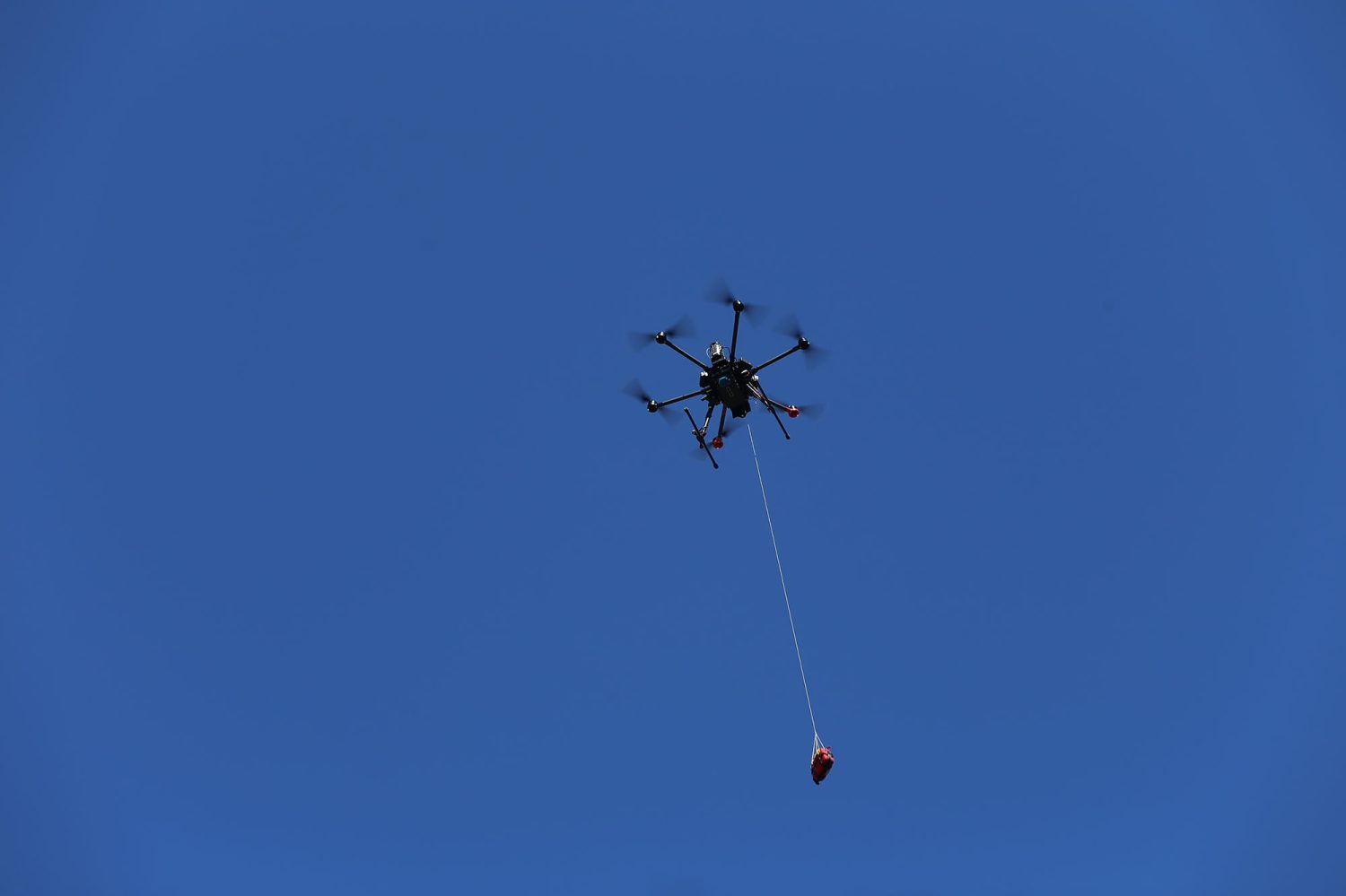
Specialized Swedish drone services company Everdrone has long been an innovator in public UAV operations, but last month it actually made history when one of its craft flew an Automated External Defibrillator (AED) to a man in Sweden who’d suffered a cardiac arrest, saving his life.
Everdrone on Tuesday revealed the unprecedented operation that occurred on December 9, after a man had been stricken while shoveling snow from the driveway of his home about 75 km north of Göteborg. A doctor from a nearby hospital, Mustafa Ali, witnessed the scene as he drove to work and stopped to help. As he applied CPR, Ali asked someone to call Sweden’s emergency assistance number. Scarcely three minutes later, an Everdrone UAV appeared and lowered the AED, which was used to restart the victim’s heart awaiting the arrival of an ambulance – the first time ever a life has been saved that way by a drone.
“I can’t put into words how thankful I am to this new technology and the speedy delivery of the defibrillator,” said the 71-year-old patient, who hasn’t been identified, but has fully recovered and returned home. “If it wasn’t for the drone I probably wouldn’t be here… This is a truly revolutionary technology that needs to be implemented all over; sudden cardiac arrests can happen to anyone, not just old people with arteriosclerosis.”
It isn’t coincidental that Everdrone has marked history in that way.
The company has been at the forefront of innovating, testing, and perfecting drone uses for public safety and first responder missions – including emergency delivery of AEDs to cardiac arrest victims. In addition to many trials run in Sweden, last October, the company successfully piloted a UAV carrying the device from Göteborg during simulated emergency flights in Helsinki – the Finnish capital a full 800 km away.
That mission was the first UAV delivery of an AED flown from a different country, and one of the few de facto cross-border drone operations in the European Union. But the life-saving flight in December, says Everdrone CEO Mats Sällström, is the most compelling proof yet of the speed and efficiency of UAVs performing public services.
“This is an excellent real-world example of how Everdrone’s cutting-edge drone technology, fully integrated with emergency dispatch, can minimize the time for access to life-saving AED equipment,” he said.
Sweden began to test the performance of drones delivering AEDs to cardiac victims in 2020, with trials showing the craft beating road ambulances to sites by nearly two minutes per incident. Even minor improvements in response times are critical in responding to out-of-hospital heart attacks, which still account for about 20% of all deaths in developed nations, due to mortality rates of nearly 90%. Around 275,000 patients in Europe and 350,000 in the US fall victim to cardiac arrests outside of hospitals each year.
Chances of surviving those crises drop between 7% and 10% each minute a heart that has stopped beating cannot be restarted. That is precisely why Dr. Ali understood he needed to get to work immediately when he saw the patient collapse, and was then astonished and elated when the call for help produced such fast results.
“Just minutes later, I saw something flying above my head,” he recalled. “It was a drone with a defibrillator!”
FTC: We use income earning auto affiliate links. More.




Comments